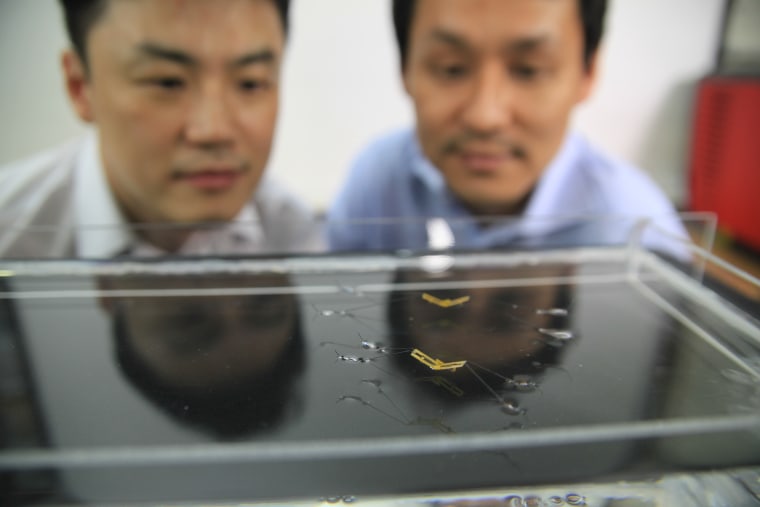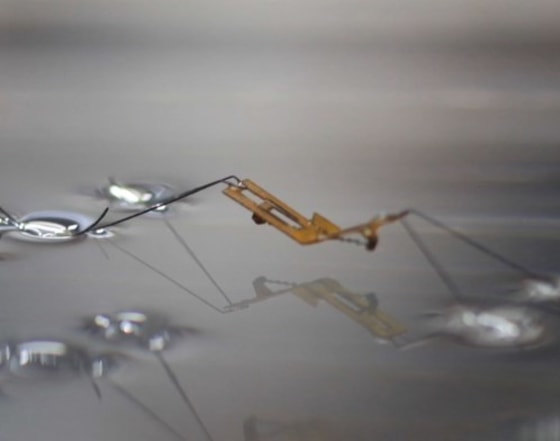Mimicking a real-life bug known as the water strider, a team of international researchers has created a robotic insect that can jump on water without making a splash.
"I'm just fascinated by how the water striders can jump on water and I'm really excited to see that we were able to extract the principles from nature to re-create one of the most fascinating locomotion of nature, the water jumping," said Kyujin Cho, professor of mechanical engineering at Seoul National University.
Related: Creepy Crawly: This Robot Moves Just Like a Cockroach
The prototype robot weighs just two-thousandths of an ounce (68 milligrams) and has a 3/4-inch (2- centimeter) long body. To create a robot that could successfully launch itself from the surface of water, the researchers from Seoul National University and Harvard University studied how water striders (Gerridae) jumped on water. They noticed that the creature's long legs accelerate gradually, so that the water surface doesn't retreat fast and lose contact with the legs.
The authors theorized that the maximum force of the striders' legs is always just below the maximum force that water surface tension can withstand. In their robot they used a torque reversal catapult (TRC) mechanism to generate a small initial torque and gradually increase, without exceeding the water's surface tension. High-speed camera footage of the insects also revealed that the water strider sweeps its legs inward to maximize the time they can push against the surface of the water, thus maximizing the overall momentum.

The researchers then applied this concept to help the robot insect achieve lift off. If the water surface is not broken, it can endure 16 times the body weight of the robotic jumping insect. The robotic insects can jump as high on water as on hard ground.
Related: Bionic Animals Mimic Ants, Butterflies and Chameleons
In addition to Cho, the multi-disciplinary research team included biologists Professors Piotr Jablonski and Sangim Lee and fluid dynamics Professor Ho-Young Kim, all from Seoul National, and Harvard biorobotics Professor Robert Wood. Their work is published in the journal Science on July 31.

